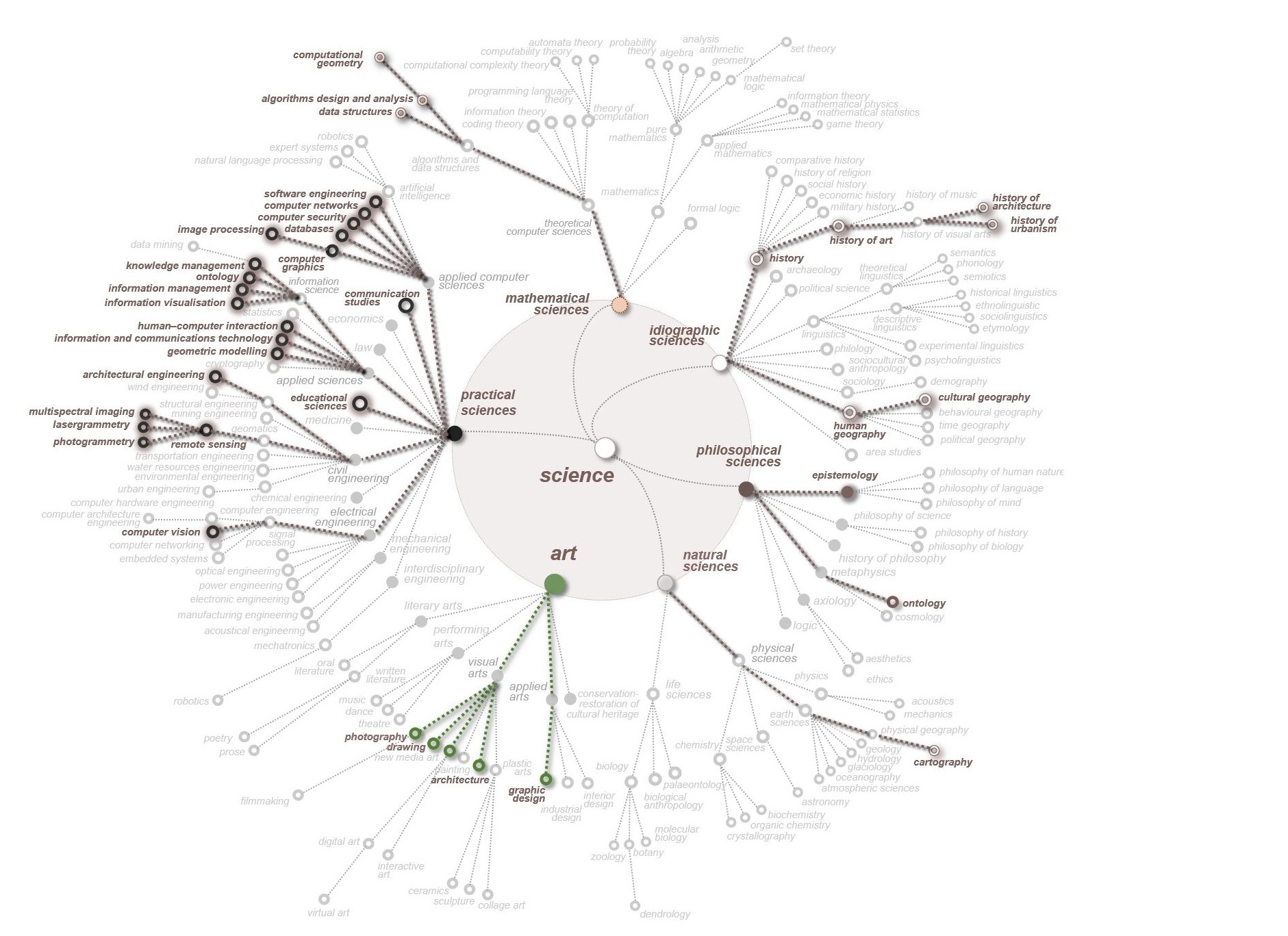The MAP laboratory is a Proprietary Research Unit (UPR) of the Centre National de la Recherche Scientifique (CNRS), Humanities and Social Sciences, created in 2024 and a descendant of a Joint Research Unit of the same name, UMR CNRS/MC 3495 MAP. Its activities intersect two emerging interdisciplinary fields, heritage sciences and data sciences, and focus on the design and development of ‘highly digital’ methods for exploring and analysing heritage assets. One of the distinctive traits of the laboratory’s approach is a recurrent to-and-fro between theoretical, methodological and technological research and the implementation of concrete solutions in the form of research prototypes open to academic and societal partnerships.
The laboratory is home to researchers and engineers covering a wide range of specialities and expertise, from the development of original 3D data acquisition protocols to the development of formalisms designed to improve the interpretability and analysis of spatio-historical data.
Over the years, its interdisciplinary positioning and the variety of its commitments have enabled it to develop a reflective stance on the impact of technologies and formalisms inspired by or originating from fields with a strong engineering bias, and with a predominance of digital solutions, in their specific application to heritage or historical sciences.
The concrete research practices put forward by the unit are marked by the search for a dialogue between objects of study at different scales, methods, instrumentation and the development of research prototypes (in the sense of software, IT tools, with a clear focus on open source developments). Among the unit’s areas of activity, the most visible is the instrumentation of the chain leading from digital-born 3D surveying protocols to analysis and exploitation tasks such as point cloud annotation – in other words, 3D heritage digitisation as a technological and methodological continuum serving the activity of scientific players or other partners.
But the laboratory has invested on wider issues that are now recognised as acute – in particular the issues of reproducibility, traceability, ethics or scientific integrity, or through various partnerships on the analysis of time-oriented data, spatial-acoustic data, on scientific imaging; on the issue of open data, citizen science, extended realities, etc. The laboratory’s scientific programme is organised as complementary intertwined fields of action, focused on the development and exploration of ad-hoc methods and instrumentation targeting research partners as well as dissemination partners.

The unit’s staff core competences illustrated using the MEMORIA project‘s classification